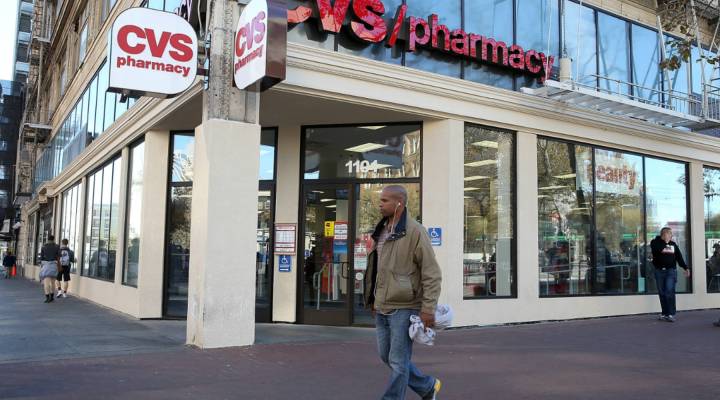
CVS might become your new doctor

Drugstore chain CVS Health Corp. is buying Aetna Inc., one of the country’s largest health insurance companies, for $69 billion.
At a time when so much in the American health care system is uncertain, this adds another potential game changer.
Erik Gordon, a professor at the University of Michigan’s Ross School of Business, joined us to discuss what each company wants from the other, and how this merger could change how consumers shop around for health care. Below is an edited transcript.
Sabri Ben-Achour: Let’s just start out by sorting out what’s in it for these two companies. Why does CVS, a drugstore, want to buy Aetna, a health insurance company?
Erik Gordon: CVS wants to get more of the dollars we spend for health care. They want us to come into their stores more often to pick up prescriptions. And if CVS controls the insurance company that pays for our prescriptions, that insurance company might push us to go, well, no surprise, to CVS instead of to Walgreens or Longs or wherever else you might go.
Ben-Achour: And what about Aetna? What’s in it for them? They’ll get cheaper drugs, maybe, by sending their members to parent company CVS?
Gordon: That’s part of it. Aetna’s had trouble growing, so this could be a way of getting some growth that it hasn’t gotten in the past. But it also could save money on drugs. It also could save money by sending us to CVS for routine care and routine tests. CVS is going to put in little wellness centers. They have MinuteClinics in their stores. That’s a lot cheaper than sending us to a doctor’s office.
Ben-Achour: This kind of merger is different from, say, two drugstores getting together, or two health insurance companies getting together. In those situations, there’s an obvious threat to consumers. But this is different. This is two different parts of the health care system getting together. Is there an obvious impact on consumers?
Gordon: Here’s what could happen. The companies could save money; they could pass some of those savings on to us. That’s sort of the trickle down theory. And sometimes not much trickles down. But they also could force us to go, well, to CVS, even if we want to go to Walgreens, and they’ll have a lot more power over where we get to spend our health care money. We might not be able to go to our doctor. We might have to go to a MinuteClinic at CVS and we might not like that.
| Notice less candy around CVS cash registers? |
| The Senate tax bill has a health care throwback |
| Health care premiums for 2018 set to go up by as much as 50 percent |
There’s a lot happening in the world. Through it all, Marketplace is here for you.
You rely on Marketplace to break down the world’s events and tell you how it affects you in a fact-based, approachable way. We rely on your financial support to keep making that possible.
Your donation today powers the independent journalism that you rely on. For just $5/month, you can help sustain Marketplace so we can keep reporting on the things that matter to you.


















